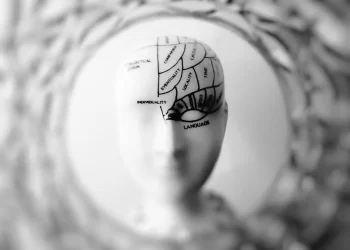“Reason is, and ought only to be the slave of the passions, and can never pretend to any other office than to serve and obey them,” said David Hume, indicating the subordination of passion to reason. Hume held that reason alone could “never be a motive to any action of the will”, and could “never oppose passion in the direction of the will”, by which conclusions he did not mean to undermine the role of reason in generating human action but only to make it a secondary factor in informing human motivation, which, according to Hume, is driven by passion with reason making available the information necessary to act. In Hume’s thesis, reason serves to pursue knowledge and establish causal relation in the service of passion, which alone determines how a human being would actually act and what goals would he or she consider worth pursuing.
Does it also mean that human beings would want to bend reason to serve the goals they consider worthy, or justify their beliefs? They can and they do, but that’s not what Hume was saying. He simply meant that concluding by reasoning from dependable evidence that it’s raining outside would not by itself motivates a human being to step into the rain, for which a person would need a goal he considers worth pursuing, and that’s the only sense in which reason is a “slave of passions”. Reason does not allow different conclusions from the same set of facts. Different conclusions from the same set of facts are conceivable only when there is a multiplicity of assumptions and the truth value of one or more assumptions is uncertain or probabilistic. In calling reason the slave of passions, Hume certainly did not have in mind those who would pick and choose “facts” and make contrived connections to arrive at a predetermined conclusion that serves their favourite “passions”, such as they might be.
While these days we come across such people in unsettling numbers, which makes the world look sharply divided and alarmingly polarized, such people have always been there, which might have led Steven Pinker to wonder why rationality “seems scarce”. But since Pinker chose to seriously ponder upon and write about the apparent scarcity of rationality only in recent times, it’s possible that something in our current everyday exchanges compelled him to investigate the issue.
Can’t say about Pinker, but I do find a lot in our everyday conversations that make me wonder why people seek out facts that tend to support a position they already hold, and, at the same time, reject or downplay every fact that weakens the factual standing of their positions. It’s like some of us want to hold certain beliefs as “facts” so bad that even the fact of the beliefs’ being mere “beliefs” is unacceptable to us, and any demonstrable “fact” that runs counter to such “beliefs” is outrightly rejected on the grounds of the fact’s being an exception (even when their assertion is absolute), or the source’s being immoral or distasteful (and thus unreliable even if the reported fact remains uncontroverted). And then, there is always the never-exhausting and ever-reliable whataboutery to fall back upon, when everything else fails.
“Okay, leave that, what about this?” Leave that, why? Because it could be explained, or the “facts” militated for it failed to stand to scrutiny. And the barrage of whataboutery continues until one runs out of explanations, and the delighted fellow declares that he or she has the explanation, at last, for which one doesn’t have any, and that explanation is what he or she has always believed and was talking about right from the start. Therefore, his or her belief is an indisputable “fact” proved by one’s running out of explanations whereas all the explanations on all the previous occasions could not impeach the “fact” now declared indisputable.
“People hold certain beliefs because they are expressions of their moral identity, their selfhood, their deepest moral convictions as to who is good, who is evil,” Steven Pinker said recently (Clubhouse, Steven Pinker on GTS, December 15, 2021), which is not very different from what Jonathan Haidt said a few years ago in The Righteous Mind (2012), wherein he noted that people arrive at their beliefs through “social intuitions” and then bring rational thoughts to the table to justify the beliefs arrived at extra-rationally, so to speak. That’s ex post facto reasoning, or cart before the horse. But that’s how it is, mostly. And this mode of thinking (or non-thinking) has been around for as long as reason has been, and we all are occasionally susceptible to it, no matter how rational we consider ourselves, for prejudices and biases have a way of finding their way even into the most well-guarded citadels of reason. But being an unsuspecting victim of unreason is very different from actively fighting everything that might expose one’s prejudice.
It’s perfectly fine to start from a certain belief, however outlandish, and examine it under unfavourable light to see if it holds up. In fact, it is the time-honoured scientific method, but to hold a firm conviction, and then dig up “facts” to support it is, at the very least, intellectual dishonesty. Worse, when such irrationality or unreason is deployed to serve political ends, which is when hilarious opinions can be downright dangerous. The fact that the DiCaprio starrer Don’t Look Up (2021) looks scarily believable rather than ridiculously comic in both American and Indian political settings symptomizes at least a partial political weaponization of unreason with far-reaching real-life consequences. And that’s alarming.
…to be continued
Originally published as part of my monthly column Street Lawyer in the December 2022 Issue of Lawyers Update (Vol XXVIII, Part 1).






